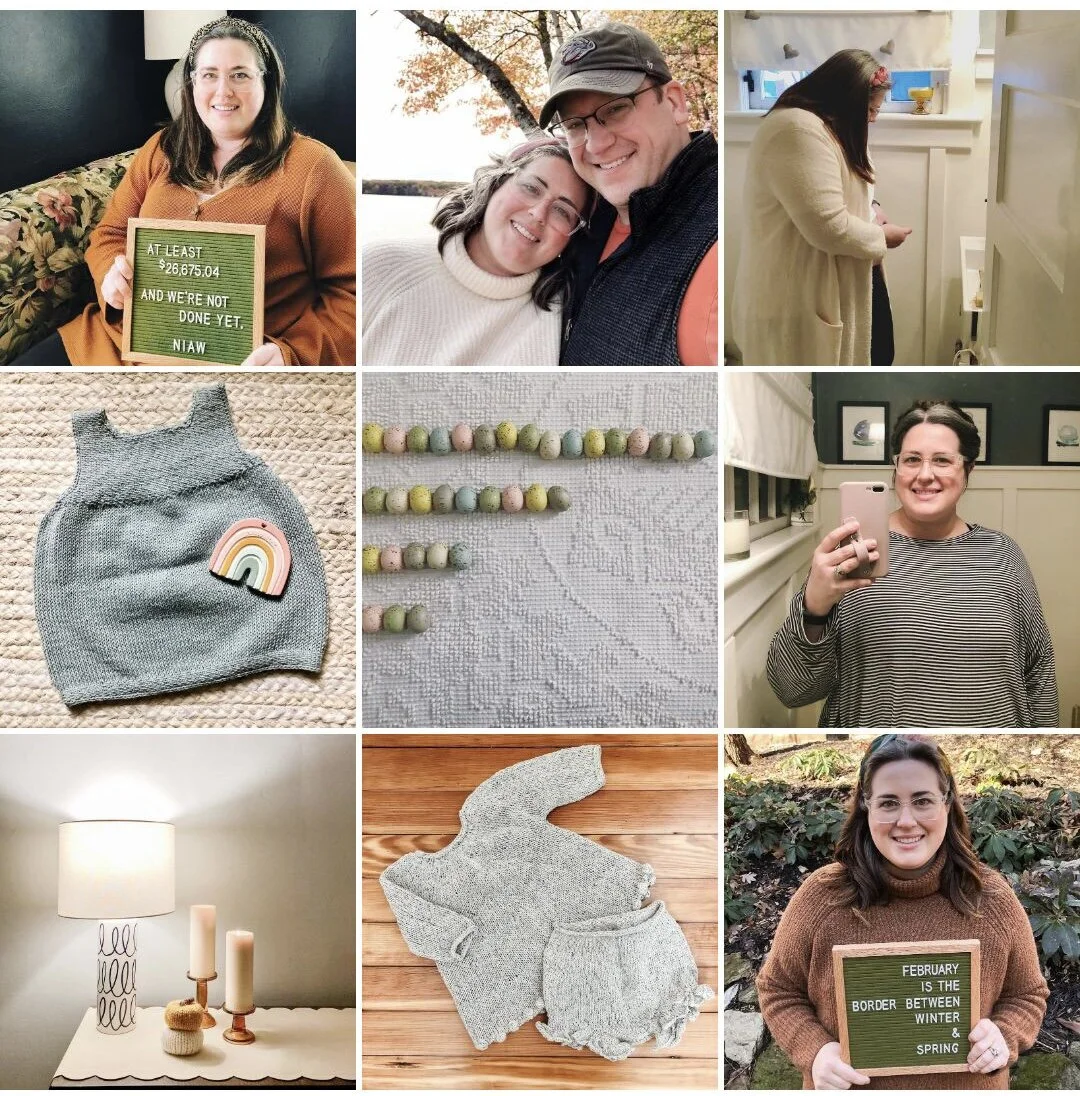Our Infertility Journey: Part Five
/Infertility impacts approximately 15% of couples in America and is a result of abnormal functioning of the male or female reproductive systems. Because I have Polycystic Ovarian Syndrome (PCOS), I live with one of the most common causes of infertility in women.
To be clear, my goal with these posts is to be open. Since we began fertility treatments in 2017 I've done a lot of searching to find experiences and stories from women living with PCOS and/or going through fertility treatments, and so far I haven't come up with much. Because I want to hear about what other women are experiencing, I am sure that others out there feel the same. While I know this is my story, I hope that by sharing it openly I will help someone else through whatever they are experiencing.
Earlier in June 2019 the New York Times released an article entitled “When You’re Told You’re Too Fat to Get Pregnant”. It sparked a lot of discussion among people that I follow on Instagram - both from the patient perspective and the medical perspective. As someone who is both fat and has been navigating fertility treatments for over three years now, this article made me pause and reflect on the experiences that I’ve had while on this journey.
While my experience has not been entirely like what was described in the article, there have been a couple of similarities. Weight has been a part of almost every conversation that I’ve had with a reproductive endocrinologist, both when we began in Florida and when we continued here in Pennsylvania. It was always something suggested, that losing weight could help me be more successful through Clomid cycles. And, to be honest, I don’t know that I ever really took it seriously enough to make necessary changes. I made half-hearted attempts to lose weight, but I never got serious about it because there never was a guarantee from anyone that making that change would bring us success. It was always just a “maybe”.
That changed when we decided to make the jump to IVF earlier this year. Our treating clinic has a BMI threshold for patients specifically because part of the IVF process will require me to be sedated. So in order for us to move forward with IVF, I’ve needed to lose about 30 pounds this year. And in the months that I’ve been working at losing weight since our IVF consultation in the end of January I have become angrier and angrier at myself for all the time that I feel I’ve wasted in this process. We’ve been in treatments since 2017 and at that very first appointment I received the suggestion to lose weight. If I had done it then, would that first miscarriage not have happened? If I had done it then, would one of the other nine treatment cycles have worked? Are my eggs diminishing in quality because I’ve wasted time and they are three years older now? I’ll never have answers to those questions, and frankly its not helpful to focus on them.
The other thing that I realized after reading this article is just how little some people understand about the basic details of how pregnancy and fertility treatments work. When describing how conception works in the article, they broke it down so clearly:
“Conception requires four events to unfold perfectly: An ovary must release an egg; a sperm must reach and fertilize that egg; the fertilized egg must then travel through a woman’s fallopian tube and into her uterus; and finally, it must remain in the uterus, anchored in place, as it grows into a healthy fetus. Infertility results when something goes amiss during any of these steps.”
The only other person ever to describe how conception works to me in any way similar was our reproductive endocrinologist here in Pennsylvania. No one else! It’s no wonder that there seems to be this struggle from some of my friends and family to understand my infertility and what causes it.
Similarly, if you follow anyone from the “trying to conceive” community on Instagram, you’ll likely see references to visits with “Wanda” as a nicer way to talk about what happens at ultrasounds and fertility monitoring appointments. It’s something that I’ve started to use myself to lighten my own experience. So when I made a joke to a friend who has a child of her own about how my visits with “Wanda” don’t seem to be ending anytime soon, she didn’t understand me right away. I had to think about why. It made me realize that when I talk about the frequent ultrasound and blood work monitoring appointments that are a big part of fertility treatments of any kind, some people didn’t realize that I was talking about trans vaginal ultrasounds, not abdominal ultrasounds. I’ve already had about 75 of these trans vaginal ultrasounds during the course of my treatments over the last three years and as we prepare to start IVF at some point in the near future, I have a more than a few yet to go before we actually conceive. But for someone who doesn’t go through these types of treatments, why would they know that’s the type of ultrasound that is used?
One of the best resources that I’ve reference both as someone going through fertility treatments and to my friends and family so they can understand what I’m going through is Fertility IQ. With education about anything from how various lifestyle choices impact your fertility to the risks and benefits associated with different types of treatments to resources for same sex couples seeking to grow their families, it has been an invaluable part of my infertility treatment experience. I’d encourage you to visit their website and explore a bit!
As we come closer and closer to beginning the IVF process, I find myself waffling between hope and anxiety. That little stack of baby clothes has grown since I last shared it, and I often find myself wandering into our guest room, dreaming of the nursery that we’ll eventually design for that space. I still have those feelings of frustration too about my weight, but as I’ve begun to find success in that weight-loss process over these last months I’ve also found some of my self-confidence returning as well. I feel better, and I know it’s because I’m making better choices in the hopes of achieving something that Kurt and I have dreamed of for over three years now. I’m excited about these next steps we will take, and can’t wait to share them with you!














